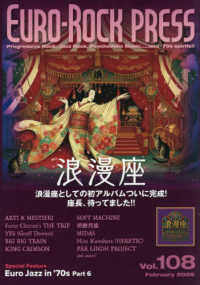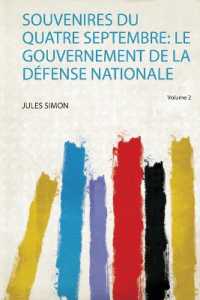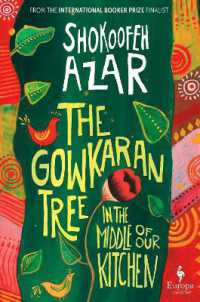- ホーム
- > 洋書
- > 英文書
- > Science / Mathematics
Full Description
The twenty-five chapters showcase current orientations of research in science education and are of interest to science teachers, teacher educators and science education researchers around the world with a commitment to evidence-based and forward-looking science teaching and learning.








